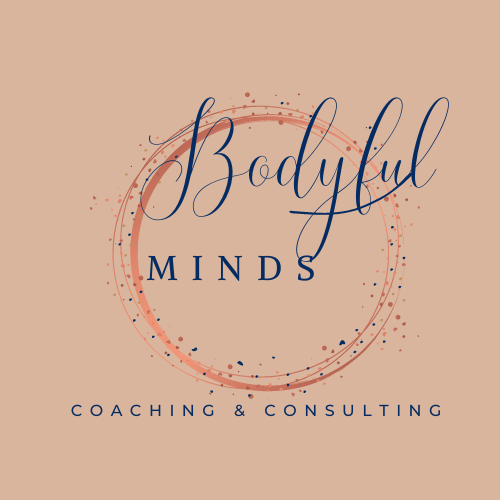Understand why you may feel stuck in your career and why you should try to change this
There are many reasons why your career stalls or even dwindles once you become a mother. But does it matter? We can’t have it all anyways, can we? No, we can’t have it all. That is if you define ‘all’ as everything we ever wanted at the same time. That is never realistic though since we always achieve goals only one step at a time. So it is not so much about having it all in the sense of having everything at the same time. We can, however, set priorities that are in line with our values and what we want from life. This is also true for our career development.
You are not alone in this
This article sets out to reflect on reasons for why your career may have stalled or dwindled with motherhood. The discussion unpacks common reasons that I have come across a lot. The article will hopefully show you, that you are not alone in this. I want to show you, that it is not fault that your career development has slowed in motherhood. The “why” behind a career off-track feeds into why it is important to plan how to get your career back on track. Just waiting until the kids are older won’t do the trick.
Make it your own
You should evaluate your specific situation. I am providing a career check-up as a quiz and a self-assessment alongside this article. They will help you look at:
- how much you feel the reasons mentioned here affect you and your career development, or not, and
- it offers you an opportunity to reflect on what other reasons play a role for you individually, if you do the deep-dive self-assessment.
The second part of the self-assessment will help you to reflect on why actively driving your career growth might be a good idea. In my experience, it is crucial to work through the form step by step in writing. It really helps you reflect on what is most relevant for you, so take your time with it. This article is really just a starting point for you. You can find the form at the end of this article.
Helping you make the right choice for you
With “more you and not more to do” in mind: Please rest assured, that I don’t want to add to any overwhelm or pressure you may be feeling already. I want for you to be able to make an informed choice on how you want to develop your career, or not. You could even still be pregnant and apprehensive of what it may mean to go back to work. With this article and the check-up I want to support you in making the right choice for yourself. I want to support your career development in and throughout motherhood.
Disclaimer – getting ahead during your first pregnancy
Are reading this while pregnant with your first child? It’s great, that you want to get ahead of the game. Please bear in mind, that only once your baby is here and you get to know each other, you can really grasp whether or not your current career path is going to work for you. You may also find that you need to change tracks.
It depends on your child’s character and the way in which motherhood challenges and changes you. This can change even later on as your motherhood journey progresses and maybe your career stalls despite best efforts. In that case, it might be good to go back and re-assess your situation to get a better picture and new starting point. But let’s dive into some of the intrinsic and extrinsic reasons for why career development may get off track in motherhood.
Body changes in pregnancy – changed focus post-partum
Already during pregnancy your body is changing to ensure that you can care for your baby. It prepares you to focus on the newborn and its needs after birth. We now know that there are even changes to the brain of a woman during pregnancy, preparing it for optimal function for when the baby is born. (e.g. Hoekzema, E., Barba-Müller, E., Pozzobon, C. et al. Pregnancy leads to long-lasting changes in human brain structure. Nat Neurosci 20, 287–296 (2017). https://doi.org/10.1038/nn.4458; more recently Servin-Barthet, C., Martínez-García, M., Pretus, C. et al. The transition to motherhood: linking hormones, brain and behaviour. Nat. Rev. Neurosci. 24, 605–619 (2023). https://doi.org/10.1038/s41583-023-00733-6 ). All of this makes perfect sense, especially from an evolutionary perspective.
This could be one reason why you may feel less focused on or even interested in continuing to develop your career in motherhood. Already during pregnancy you may experience some brain fog and difficulty concentrating on or remembering things. Combined with potential overwhelm with what it means to care for a baby, it is very natural to take a step back. Taking a step back and slowing down for a while (or also for longer, if you choose to and can afford it), is perfectly fine.
Time off post-partum
Time off post-partum is so important not only for bonding and healing. Sadly, the time you get varies so greatly from country to country, not only for mothers, but also for fathers. Staying away for too little time can be similarly detrimental as staying away for too long.
The effects of coming back too soon
If you have to go back to work only weeks after giving birth, your whole body and hormones are probably still all over the place and nights alone are bad enough to make it tough to work. As a result you may feel like your job is only a burden, keeping you from bonding with your baby. A very short recovery also sets you up for an extreme disconnection from your body by the way. It forces you to push past any pain or discomfort you may still be experiencing just so you can function at work and keep your job. It also sets mothers up to do badly in a job they were good at before. This adds to another reason that I will discuss below which is the appreciation of mothers as part of the workforce.
When you take a longer break
Contrary, longer time off after giving birth as much as that may be desirable for some, can also affect your performance. When you come back to work, things are likely to have changed. Maybe new systems are in place. Maybe you get assigned to a new role and have to learn things at least partly from scratch. If you have asked to work in a part-time role, you may as a consequence have fewer responsibilities than before. Working part-time your salary is likely to have decreased. Having to start (partly) from scratch and basically being demoted after coming back to work, often means that you may feel less capable and certainly less appreciated on the job.
Lastly, both, coming back very soon, or coming back later, are likely to make you feel less competent and less confident for the aforementioned reasons. You are probably less likely to speak up in a meeting, pitch an unconventional idea, or ask for a promotion. On the flip side, your employer is likely to perceive you as less engaged, maybe less sharp, which leads them to the conclusion that you may be less interested in career development.
Motherhood perceived as risk and burden for organizations
This leads us straight into the next set of reasons why your career may stall or dwindle. Employers consider women of childbearing age as a risk to their business. For example, a pregnancy may mean that a woman is put on bedrest. It means she misses work from one day to another without handing over. As a result, important projects are often not assigned to an expecting mother, already hampering her career prospects and taking away an opportunity to prove herself.
Even amongst colleagues there can be resentment for expecting mothers. They anticipate picking up the slack during her maternity leave, for example. If a woman secures an open-ended contract after holding a fixed-term position and she gets pregnant, you can rest assured that people will talk behind her back. It was all strategy to get the secure job and then get pregnant after all.
Mothers as costly second class employees
These are just a few examples how (expecting) mothers are often disregarded in the workplace. This even happens if they have remained with the same employer who seemed to value them before. I have said it elsewhere, but it couldn’t be more obvious:
Mothers are considered second class employees for who special arrangements need to be made at the personal level (e.g. space for pumping/nursing), but also at a team level (splitting up the task while she is gone, or hiring and training someone to cover for her during maternity leave). All at extra cost to the company. Motherhood is never associated with positive career development from an employers perspective. Additionally, expectations are, that mothers will attend to their sick child more often than the fathers and miss work yet again. Statistics confirm this expectation, but that doesn’t mean that mothers don’t make up for it in other ways. To be honest this whole topic is worth exploring in a separate article in future, so I will leave it at these few examples for now.
In short, (expectant) mothers aren’t perceived as performing at the same level as pre-pregnancy. They are considered a burden and risk, also financially, for the organization and the team during pregnancy and thereafter. Lastly, adding culture into the mix, mothers aren’t considered as interested in serious career development. If they are, they are labelled as bad mothers. But more on that later.
Lack of good part-time positions
From a job market perspective, there is also the problem of quality part-time positions, including those at leadership levels. It is often assumed that leadership positions require a full-time contract. Even worse, many current managers think that from a certain level of management, you need to work more than full-time, i.e. at least 50-60 hours per week and more, in order to get all the work done. Something has got to give, right!? And their family life suffered after all, surely this could not have been done differently…
It is often the mother who decides to decrease her hours, not least because her career has likely already taken a hit (see reasons above) and the partner, if there is one, is likely bringing home more money (now). Economically, it doesn’t make sense for them to cut the hours of the person with higher paycheck – at least not on the face of it. The young family will loose income in the short term that is sorely needed. Income that also pays towards childcare, which is inevitably necessary, if both parents want to work. Which brings me to the next reason why mothers’ careers get off track.
Cost of childcare
Cost of childcare is prohibitive in many places. It is actually often so high, that some women would have to pay all their salary towards childcare to go to work and that trade off often does not seem worthwhile to them. Obviously, we need to lobby for more affordable, high quality and flexible child care. In the meantime the direct comparison of cost with the mother’s potential income falls short in my opinion.
Why does it fall short? Firstly, because both parents should pay for childcare. So we need to deduct childcare cost from both parents’ incomes, or the over all household income. You could even add in a weighting dependent on the share each salary has in the combined household income, in fact. This assumes that the mother’s pay has decreased (as explained above) as a result of parenthood. Parenthood, however, is a common endeavor. Not only would the mother assume the cost of childcare in full, or at least more in proportion, but even chip in her free labor as care work at home.
This brings me to my second point, why the straight calculation of the mother’s income against childcare cost is wrong. The mother also looses out on other benefits such as healthcare, pension etc.. More importantly, she looses at least some work experience that would qualify her for higher paying jobs and allow her continued career development, better pension and benefits. Spoiler alert: This is a very good reason to keep thinking about your career and how to maintain, if not develop it while your kids are small.
Society’s expectations of mothers
Then there is society… I am sure you know this from your own experience, but the incredibly high expectations society has of mothers have long made their way into stand-up comedy. That is how ridiculously high they are. With regards to working, of course, mothers should work nowadays, but also not be ‘too ambitious’ and work ‘too much.’
A good modern mother works, loves her job, but not more than her children or her partner. She works diligently, needs no breaks, does not talk about her kids at work, nor do problems with her kids affect her work. The minute she leaves the office (the school, the practice), she fully embraces all her maternal duties. She bakes the most beautiful cakes and playing with the kids is the only break she needs. Household chores are no problem either, although a maid once a week is kind of acceptable. She’s the perfect wife, daughter and friend too, of course.
It is no wonder that mothers are weary of actively pursuing better career development for fear of doubting their own commitment to their children and family. Naturally, they also worry about how they and their family is perceived by others. Who knows what would happen to the rest of the family, the rest of the world, if she were to have more responsibilities at work. It seems so much easier to just wait until the kids are older and expectations ebb off a little.
Why not wait until the kids are older?
You certainly can wait until your kids are older – it’s your choice, provided it is an option for your family financially. The question is, however, what are your options and chances to pick up your career where you left it off and how quickly would you be able to proceed again at the previous pace. What are the risks you take by simply waiting and seeing how it goes when you get back? Please remember, I am assuming that you are inherently interested in developing a career for your own intellectual pursuit as much as financial freedom.
Being stuck with the “mum label”
I have outlined the issues that go along with taking time off from work above, these won’t get any better unless you very actively (for fear of saying ‘aggressively’) show an interest in developing your career. There is already a bias against you. The longer you wait, the harder it will be for you to get out of that familiar position on the one hand, but it will also be even harder for you to get someone to notice your work and potential on the other.
Financial loss through missed career opportunities
You will loose out financially, because you are less likely to get higher paying jobs and better benefits as I mentioned when looking at childcare cost. It is really important that you set up a plan with your partner how the combined household income will also cover these costs for you. Especially a retirement fund is extremely important, if you choose to stay home longer, or if you choose to not pursue career growth.
Economic considerations and aging (grand)parents
And let’s not forget, the longer you wait the higher the discrepancy in your salary compared to your partner’s will be. It means that if there are circumstances requiring less hours at work and more time at home, you will invariably be the one to take this on, further reducing your chances at a career of your own. Often once the kids are old enough and more independent, the (grand)parents start getting frail, requiring more care. It is, of course, lovely, if grandparents are looked after and cared for by their family – that is not the point here. The question is, whether or not you are prepared to again stay at home more and take on the extra care work. Please don’t get me wrong – if you want this, then that is great and perfectly fine. I just want you to really think it through from start to end.
Effects of perimenopause and menopause on career development
Other than your own, or your partner’s parents getting older, you also get older as your kids age. No surprise there, I know. What we do know, however, is that perimenopause and menopause can go along with severe symptoms that are often not connected to the hormonal change women are experiencing and hence women don’t get the help they need.
Struggling at work
Sadly, these symptoms lead to women feeling unsupported and unable to perform on their job (some 40% on a weekly basis and 20% on a daily or multiple times per day basis according to Biote research). Brain fog, forgetfulness, depression are just a few of the debilitating consequences of a changed and changing hormonal status. As a result 10% of perimenopausal and menopausal women experiencing symptoms even left their job (Fawcett report ‘Menopause and the Workplace’). The number of women considering leaving their job is even higher at one in six according to CIPD research from 2023. This does not seem to be a time where we start thinking (again) about career development.
If not leaving their job, between 10.8% and 15.6% of women report missing work depending on the severity of their symptoms. More severe symptoms meant a higher likelihood of being absent from work (Mayo Clinic, 2023, ‘Impact of Menopause Symptoms on Women in the Workplace’). Luckily, more research is happening now, but doctors are still not well trained and research is still small in this area.
In short, when your kids are older, you might not feel as capable as you used to. Without the right medical support you may not be able to actively drive forward your career development depending on how strongly symptoms affect you. Similar to when we have kids, we just don’t know what to expect. We don’t know how challenging this new phase of live will be.
Where does that leave you?
This article was a long read and I appreciate that you have made it this far. Thank you! I think there is probably a lot of food for thought now and in my experience mulling it over alone, won’t be nearly as efficient as taking a good look and assess for yourself where you stand and how much the discussion in this article affects you. For that reason, I have created a self-assessment for you at no cost. You can get it below and please feel free to reach out with questions or feedback.

















